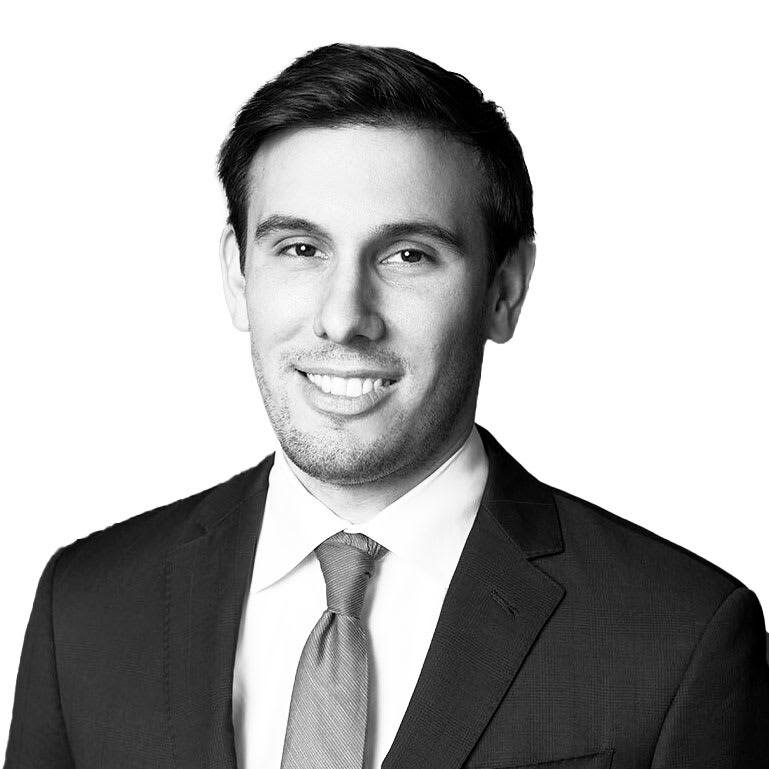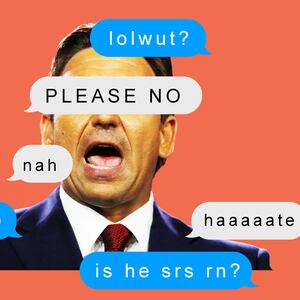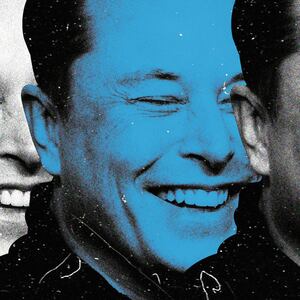The late philosopher Herbert Marcuse once wrote that a true democratic marketplace of ideas is impossible in a society with social inequities. His prescription was as simple as it is chilling: We must restrain the liberty of “self-styled conservatives” who create the inequities, even if doing so requires “undemocratic means.”
In his new bestselling book, America’s Cultural Revolution: How the Radical Left Conquered Everything, conservative journalist and activist Christopher Rufo accurately observes that critical theorists like Marcuse call for suppressing speech based on “a racial and political calculus.” He correctly concludes this would be “tyranny.”
But while Rufo presents himself as a critic of Marcuse and his ilk, he is all too willing to employ critical theory’s tyrannical means for his own ends—trading constitutional principles for political expediency.
He says Marcuse’s ideas about systemic oppression have “devoured America’s institutions.” And he’s not entirely wrong. To dislodge these ideas, Rufo argues conservatives must be unafraid to use political and democratic power to “lay siege” to the captured territory, including America’s colleges and universities. But he hardly seems concerned with that power’s limits. Indeed, he’s blunt about it: “In a sense,” he says, “we can do whatever we want.”
The Framers anticipated overzealous activists like Marcuse and Rufo. The Constitution they ratified places barriers around how democratic majorities can exercise their authority. And those barriers require eternal vigilance to maintain. If Rufo’s siege catapults are allowed to fire unchecked, core American freedoms will be left in rubble.
For example, Rufo was an “excited” early proponent of Florida’s “Stop WOKE Act,” which prohibits both public universities and private employers from engaging in certain types of “discriminatory” speech. In an abuse of state power right out of the Marcusian playbook, the Stop WOKE Act imposed a sweeping speech code on faculty in Florida’s public universities, prohibiting instruction that “espouses, promotes,” or “advances” eight ideas related to “race, color, national origin, or sex” that are often promulgated by critical theorists.
In court defending the law, Florida’s lawyers have repeatedly conceded that the Stop WOKE Act would prohibit on-campus arguments in favor of policies like affirmative action while allowing arguments that oppose it. In short, the Stop WOKE Act does exactly what Rufo criticizes the critical theorists for advocating: censoring the opposition.
Marcuse would have found Florida’s legal arguments familiar, too. In one of the state’s briefs, it argues, “Even if the First Amendment did apply here, Florida’s compelling interest in stamping out discrimination based on race and other immutable characteristics amply justifies any burden on speech the Act may impose.” That’s precisely the argument he and other critical theorists have advanced for decades.
But the First Amendment doesn’t tolerate the government gagging free speech on campus. In the 1980s and ’90s, for example, the courts repeatedly struck down restrictive campus speech codes that the critical theorists proposed under the guise of anti-discrimination measures. And after a lawsuit by the Foundation for Individual Rights and Expression (where I work), the same fate looks likely for the Stop WOKE Act. The law has already been put on hold by a federal judge, who called it “positively dystopian” and criticized Florida officials for arguing that the state has “unfettered authority to muzzle its professors in the name of ‘freedom.’”
By using the same tools as the critical theorists, Rufo is worse than hypocritical: He’s self-defeating. The theorists’ failed speech codes would gain new life if Florida’s defense of the Stop WOKE Act prevails.
And Rufo’s “victory” would echo across the country. The principles at stake in conservative Florida are the same ones at stake in progressive California, where FIRE recently filed a lawsuit challenging the requirement that 54,000 community college professors incorporate highly politicized left-wing diversity, equity, and inclusion viewpoints into their teaching of 1.8 million students. A loss in either case would let DEI administrators operate with impunity anywhere conservatives aren’t in power. In fact, Florida’s lawyers admitted that their position would allow a future Democratic majority to prohibit instruction on American exceptionalism.
Sure, Rufo sometimes pays lip service to free speech principles. He said college students should be free to “let it rip” and “have a wide-ranging debate.” He also stated that policing classroom speech is “a losing fight for conservatives, and even on principles, probably not wise.” So why exactly does he support the Stop WOKE Act?In “Critical Race Theory: An Introduction,” scholars Richard Delgado and Jean Stefancic write that critical theory “questions the very foundations of the liberal order, including equality theory, legal reasoning, Enlightenment rationalism, and neutral principles of constitutional law.” Here, too, Rufo has far more in common with critical theorists than he and his supporters might like to admit. Like them, he dismisses free speech and academic freedom as “a problem” because their defense requires “a totally neutral stance towards any ideas, concepts, and ideologies.”

Christopher Rufo, a conservative activist and New College of Florida trustee, walks through protesters at a bill signing event featuring Florida Governor Ron DeSantis, who signed three education bills on the campus of New College of Florida in Sarasota, Fla. on May 15, 2023.
Thomas Simonetti for The Washington Post via Getty ImagesRufo, a trustee at New College of Florida, recently tweeted a gleeful announcement that a faculty member who criticized him did not have his contract renewed. “It is a privilege, not a right, to be employed by a taxpayer-funded university,” he wrote. “New College will no longer be a jobs program for middling, left-wing intellectuals.” His theory seems to be that because New College is taxpayer-funded, administrators can fire faculty for almost any reason, including for their political views. Thankfully, decades of court precedent say otherwise, having prevented countless liberal college administrators from firing conservative faculty with impunity for exercising their academic freedom rights. As the Supreme Court has correctly judged, imposing a “straitjacket” on academic freedom “would imperil the future of our Nation.”
Marcuse argued in 1965 that “the restoration of freedom of thought may necessitate new and rigid restrictions on teachings and practices in the educational institutions.” Marcuse was wrong then—and by emulating Marcuse’s strategy, Rufo is wrong now.
Whatever reforms would benefit higher education—and FIRE has suggested many—they must protect, not destroy, freedom of speech, and academic freedom. Both are vital to the university’s core purpose: the discovery and dissemination of knowledge. And any reforms that jettison those freedoms will be ineffective, not least of all because they’ll be unconstitutional.
In researching his new book, much of which functions as an intellectual history, Rufo surely came across Audre Lorde’s classic quote: “The master’s tools will never dismantle the master’s house.” In trying to take down Marcuse’s legacy with Marcuse’s tools, Rufo has made exactly that mistake.
If Christopher Rufo wants to lay siege to the institutions, his weapons of attack will need greater precision—lest he become the very enemy he seeks to defeat.
Nico Perrino is executive vice president of the Foundation for Individual Rights and Expression (FIRE). He is also host of “So to Speak: The Free Speech Podcast” and the co-director and senior producer of the free speech documentary, Mighty Ira.










